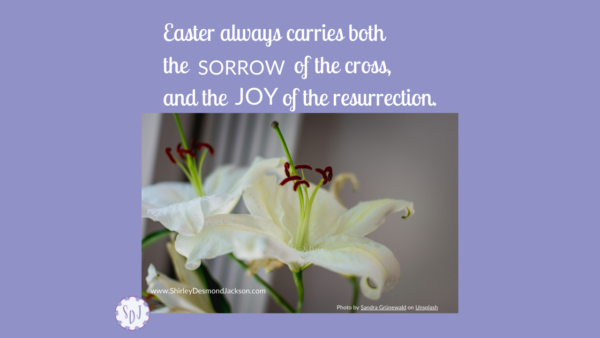
Subscribe to receive a FREE Bible Study!
Share this page

The Important Role Hymns Played In The Events Of The Cross
March 28, 2024
When they had sung a hymn, they went out to the Mount of Olives. — Mark 14:26 (NIV)
I love to sing. That isn’t to say I sing well ~ actually the opposite is true. I long ago resigned my lot ~ I can make a joyful noise as I worship the Lord (Psalm 98:4). Despite my lack of musical skill, songs ~ and especially their lyrics ~ have a lasting effect on me. I believe we are all created to appreciate music in some way.
That’s why this verse popped out at me as I recently studied the gospel of Mark:
When they had sung a hymn, they went out to the Mount of Olives. (Mark 14:26 NIV)
To give the verse some context, Jesus and His disciples had just finished sharing the passover meal ~ what we now know as the Last Supper. After they ate, they made their way to the Mount of Olives ~ the first step in the events leading to the cross. But before they left, they sang a hymn.
Hymns played a significant role in the sharing of the passover meal. Traditionally these hymns came from Psalms 113-118 which are also known as the Hallel Psalms. Hallel comes from a Hebrew word which means “Praise”.
As I read through these psalms, I see chilling descriptions of the cross. People would mock Jesus for trusting in God (Mark 15:31-32):
Why do the nations say,
“Where is their God?” (Psalm 115:2 NIV)
Jesus would feel the distress of death (Mark 15:37):
The cords of death entangled me,
the anguish of the grave came over me;
I was overcome by distress and sorrow. (Psalm 116:3 NIV)
Yet along with these sorrowful words, the hymns weave words of hope and promise:
For you, Lord, have delivered me from death,
my eyes from tears,
my feet from stumbling,
that I may walk before the Lord
in the land of the living. (Psalm 116:8-9 NIV)
I will lift up the cup of salvation
and call on the name of the Lord
I will fulfill my vows to the Lord
in the presence of all his people. (Psalm 116-13-14 NIV)
Praise the Lord, all you nations;
extol him, all you peoples.
For great is his love toward us,
and the faithfulness of the Lord endures forever.
Praise the Lord. (Psalm 117:1-2 NIV)
The Lord is with me; I will not be afraid.
What can mere mortals do to me?
The Lord is with me; he is my helper.
I look in triumph on my enemies. (Psalm 118:6-7 NIV)
Traditionally, the last hymn sung during the passover was Psalm 118 which begins and ends with these words:
Give thanks to the Lord, for he is good;
his love endures forever. (Psalm 118:1, 29 NIV)
As Jesus and His disciples experienced the events of the cross, these words would have reminded them of God’s faithfulness even when things seemed hopeless. And when they saw the resurrected Christ, they would have known the full joy expressed in these hymns.
Easter always carries both the sorrow of the cross, and the joy of the resurrection. Even as we mourn the sufferings of Jesus, we rejoice because His sacrifice gives us life.
Lord Jesus, thank You for going to the cross and suffering for our salvation. It comforts us to know that the hymns sung at the passover meal point to God’s unfailing love. As we celebrate Easter, may we hold both the sorrow of the cross and the joy of the resurrection in our hearts. Amen.
The Important Role Hymns Played In The Events Of The Cross
March 28, 2024

When they had sung a hymn, they went out to the Mount of Olives. — Mark 14:26 (NIV)
I love to sing. That isn’t to say I sing well ~ actually the opposite is true. I long ago resigned my lot ~ I can make a joyful noise as I worship the Lord (Psalm 98:4). Despite my lack of musical skill, songs ~ and especially their lyrics ~ have a lasting effect on me. I believe we are all created to appreciate music in some way.
That’s why this verse popped out at me as I recently studied the gospel of Mark:
When they had sung a hymn, they went out to the Mount of Olives. (Mark 14:26 NIV)
To give the verse some context, Jesus and His disciples had just finished sharing the passover meal ~ what we now know as the Last Supper. After they ate, they made their way to the Mount of Olives ~ the first step in the events leading to the cross. But before they left, they sang a hymn.
Hymns played a significant role in the sharing of the passover meal. Traditionally these hymns came from Psalms 113-118 which are also known as the Hallel Psalms. Hallel comes from a Hebrew word which means “Praise”.
As I read through these psalms, I see chilling descriptions of the cross. People would mock Jesus for trusting in God (Mark 15:31-32):
Why do the nations say,
“Where is their God?” (Psalm 115:2 NIV)
Jesus would feel the distress of death (Mark 15:37):
The cords of death entangled me,
the anguish of the grave came over me;
I was overcome by distress and sorrow. (Psalm 116:3 NIV)
Yet along with these sorrowful words, the hymns weave words of hope and promise:
For you, Lord, have delivered me from death,
my eyes from tears,
my feet from stumbling,
that I may walk before the Lord
in the land of the living. (Psalm 116:8-9 NIV)
I will lift up the cup of salvation
and call on the name of the Lord
I will fulfill my vows to the Lord
in the presence of all his people. (Psalm 116-13-14 NIV)
Praise the Lord, all you nations;
extol him, all you peoples.
For great is his love toward us,
and the faithfulness of the Lord endures forever.
Praise the Lord. (Psalm 117:1-2 NIV)
The Lord is with me; I will not be afraid.
What can mere mortals do to me?
The Lord is with me; he is my helper.
I look in triumph on my enemies. (Psalm 118:6-7 NIV)
Traditionally, the last hymn sung during the passover was Psalm 118 which begins and ends with these words:
Give thanks to the Lord, for he is good;
his love endures forever. (Psalm 118:1, 29 NIV)
As Jesus and His disciples experienced the events of the cross, these words would have reminded them of God’s faithfulness even when things seemed hopeless. And when they saw the resurrected Christ, they would have known the full joy expressed in these hymns.
Easter always carries both the sorrow of the cross, and the joy of the resurrection. Even as we mourn the sufferings of Jesus, we rejoice because His sacrifice gives us life.
Lord Jesus, thank You for going to the cross and suffering for our salvation. It comforts us to know that the hymns sung at the passover meal point to God’s unfailing love. As we celebrate Easter, may we hold both the sorrow of the cross and the joy of the resurrection in our hearts. Amen.

Recent Comments